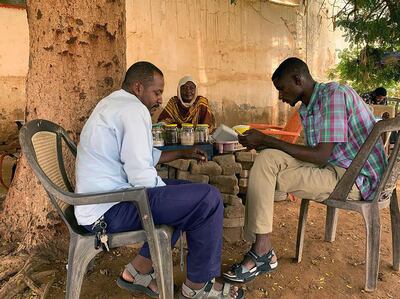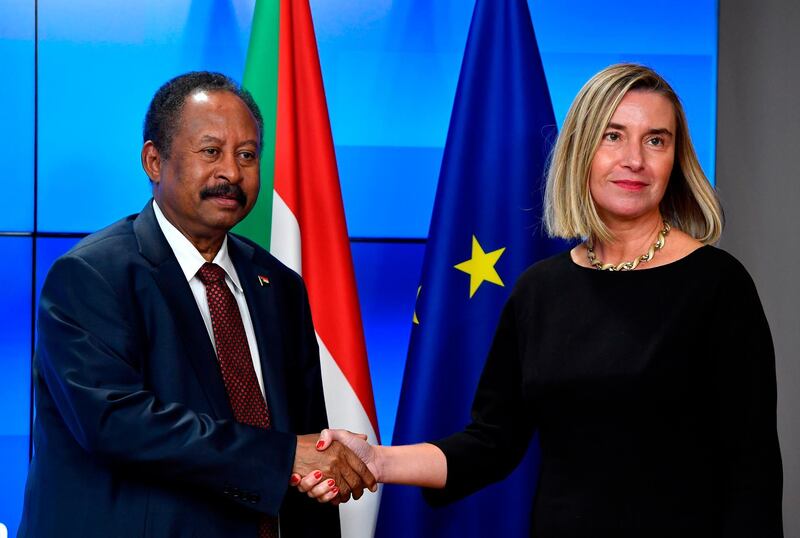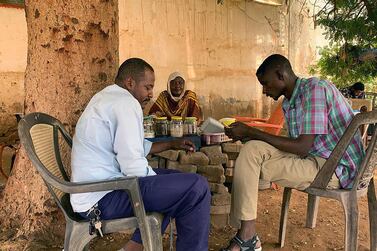Sudan’s transitional government is looking at ways to help the country's “tea ladies”, thousands of disenfranchised women who sell tea, coffee and snacks on the streets to support their families.
The plan, a humane gesture rarely seen during Omar Al Bashir’s 29-year authoritarian rule, was announced late on Wednesday after a Cabinet meeting to discuss Sudan’s 2020 budget.
The Information Minister, Faisal Saleh, said assistance to tea ladies would be part of a government move to support society’s “vulnerable classes”.
Known in Arabic as "sitat el shay", there are about 30,000 tea ladies in the capital Khartoum alone.
They mostly come from western and southern regions of Sudan, where strife has raged for decades.
Many of them are widows or single mothers whose husbands have been killed or forced to disappear in the fighting, or who have left the country and not been heard from in years.

Under Mr Al Bashir’s rule, tea ladies were constantly harassed by police, and accused by authorities of involvement in prostitution and the use of drugs.
When citizens began a sit-in outside the armed forces headquarters in Khartoum in early April, the tea ladies were there, making hot drinks and food for the protesters.
The sit-in continued after Mr Al Bashir’s April 11 removal to press the generals who overthrew him to hand over power to civilians, but it was violently broken up by security forces on June 3.
That Prime Minister Abdulla Hamdok is allowing for the tea ladies in a budget that desperately needs foreign aid to work shows the prominent economist’s resolve to help his country’s marginalised classes.
Regardless of the size and effectiveness of the help he gives to the poor – about 65 per cent of Sudan’s 40 million people are believed to live in poverty – the 2020 budget poses the first serious test to the civilian government.
It was born from a power-sharing agreement reached in August between the military and the pro-democracy forces who staged months of street protests against Mr Al Bashir’s rule.
Mr Hamdok says Sudan needs US$8 billion (Dh29.4bn) in foreign aid over the next two years, and another $2bn to prevent the collapse of the local currency.
It is trading unofficially at about 80 Sudanese pounds to the US dollar, compared to 65 last month and 45 in May.
Unemployment stands at about 50 per cent and inflation is at nearly 60 per cent. Foreign reserves are barely enough to cover imports for several weeks.
Mr Hamdok will soon have to reduce state subsidies on fuel and bread to streamline the economy, measures that in the past led to popular discontent and deadly riots.
He has spoken of creating a social support network to cushion the impact of such moves.
Mr Saleh said the 2020 budget would feature higher spending on education and health care and steps to reduce poverty, but he gave no details.







